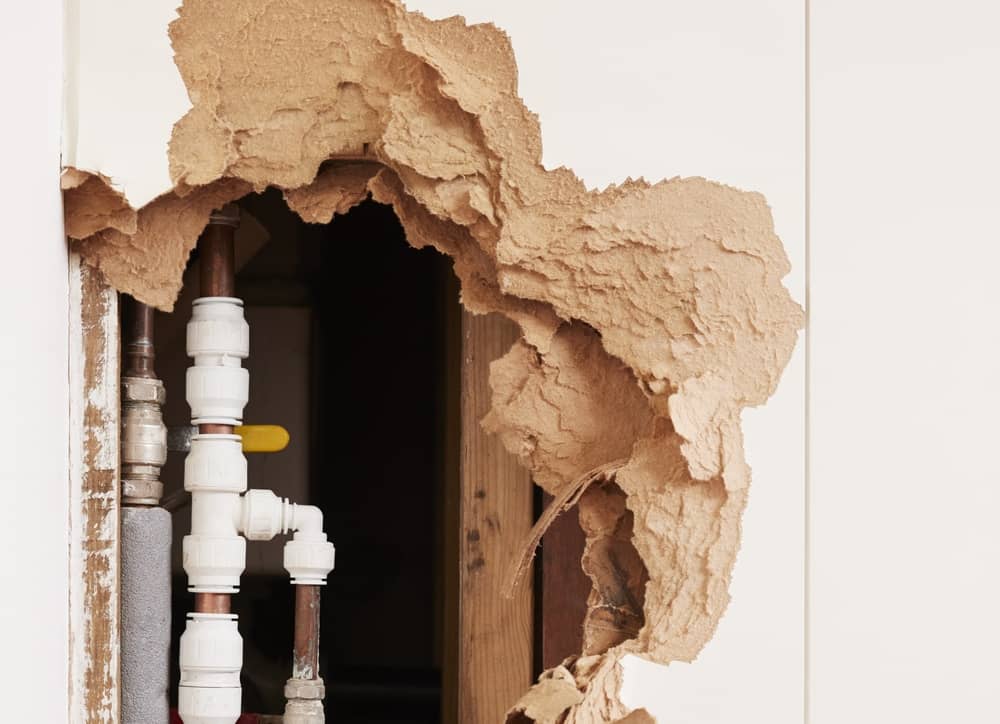When it comes to home disasters, few things are more frustrating than a burst pipe. One minute everything’s fine, and the next, you’re dealing with a huge mess. But why do pipes burst in the first place?
Is it the cold weather, aging pipes, or something else entirely? Understanding the root causes is the first step in keeping your plumbing system intact and your home dry. Read on as we’ll down the common reasons pipes burst and share effective tips to prevent it from happening to you.
The Big Question: Why Do Pipes Burst?
Understanding the reasons behind burst pipes is the first step in protecting your home from costly damage. Let’s dive into the most common causes and how you can prevent them.
1. The Impact of Freezing Temperatures
One of the most common reasons why pipes burst in freezing temperatures. When the temperature drops, the water inside your pipes can freeze and expand. This expansion puts immense pressure on the pipe walls, eventually causing them to crack or burst.
Key areas in your home that are most vulnerable include:
- Basements: Often poorly insulated and exposed to cold air.
- Attics: Lack of consistent heating makes them prone to freezing.
- Exterior walls: Direct exposure to outside temperatures increases risk.
Knowing how to prevent pipes from bursting in these areas is crucial, especially during winter.
2. The Hidden Danger of Pressure Problems
Pressure buildup is another hidden danger that can cause your pipes to burst. Here’s how it happens:
- Blockages or Clogs: When water can’t flow freely due to a clog, pressure increases.
- Increased Strain: The pipe walls can only take so much pressure before giving way.
- Result: A burst pipe that can cause great damage.
Regular maintenance and promptly clearing clogs are key steps to preventing pressure-related bursts.
3. Aging Infrastructure
Older plumbing systems are more susceptible to bursts due to wear and tear over time. Here’s what to watch for:
- Corrosion: Over time, pipes corrode and weaken.
- Wear and Tear: Old pipes may struggle under pressure or extreme conditions.
- Preventative Steps: Regular inspections and timely replacements can save you from costly repairs.
If you live in an older home, knowing what to do when a pipe bursts can help you minimize damage and repair costs. With advancements in plumbing, non-invasive pipe bursting technology offers a great solution for replacing damaged pipes without extensive digging.
How to Prevent Pipes from Bursting

There are several methods you can do to save your pipes from bursting out:
Simple Way of Insulation
One of the most effective ways to prevent pipes burst during cold weather is by insulating them. Focus on vulnerable areas like basements, attics, and exterior walls where pipes are more exposed to freezing temperatures.
You can use foam pipe insulation, heat tape, or even newspaper as a temporary solution. Proper insulation keeps the cold out and the warmth in, reducing the chances of your pipes freezing and bursting. This simple step can make all the difference in keeping your plumbing safe during winter.
Small Drips to Save You from Big Problems
During cold snaps, keeping water moving through your pipes is crucial. Allowing a small drip from your faucets can relieve pressure and prevent your pipes from freezing. When the water is flowing, even slowly, it’s less likely to freeze and expand, which is a common cause of why pipes burst.
A little drip might seem wasteful, but it’s far better than dealing with a burst pipe and the costly damage that follows.
Routine Maintenance
Regular maintenance is key to preventing burst pipes. Check your plumbing system for leaks, cracks, and other signs of wear and tear. Addressing these issues promptly can stop small problems from turning into big ones.
Knowing what to do when a pipe burst starts with prevention—regular checks and timely repairs ensure your pipes stay in top shape, minimizing the risk of bursts. Remember, a little care now can save you a lot of trouble later.
What to Do When a Pipe Bursts
First,
When you discover that a pipe bursts, the first thing to do is stay calm and act quickly to minimize the damage. Immediately locate your main water shut-off valve and turn it off to stop the flow of water. This step is crucial in preventing further flooding and water damage to your home.
Second,
Open all faucets to drain the remaining water from the pipes, which will help relieve pressure and reduce the chances of more water leaking out. If water has already started pooling, grab towels, buckets, or a wet-dry vacuum to clean up as much as possible.
Lastly,
After you’ve contained the immediate damage, it’s time to call a professional plumber, like Rooter-Man, to handle the plumbing repairs. Knowing what to do when a pipe bursts is essential, but professional expertise is key to ensuring the job is done right.
A skilled plumber can assess the extent of the damage, repair the burst pipe, and check your plumbing system for any other potential issues. This helps prevent further problems down the line, saving you from costly repairs in the future.
Staying Ahead of Burst Pipes with Rooter-Man
Burst pipes can cause major headaches, but understanding the main reasons they happen—like freezing temperatures, pressure buildup, and aging infrastructure—can help you prevent them. Insulating your pipes, keeping water flowing during cold snaps, and staying on top of regular maintenance are key steps to protecting your home.
At Rooter-Man, we offer expert pipe bursting solutions in Chattanooga and Nashville with minimal disruption to your plumbing. Whether you need inspections, routine maintenance, or emergency plumbing services, we’ve got you covered. Keep your home safe and your pipes intact with the professional care from Rooter-Man.


